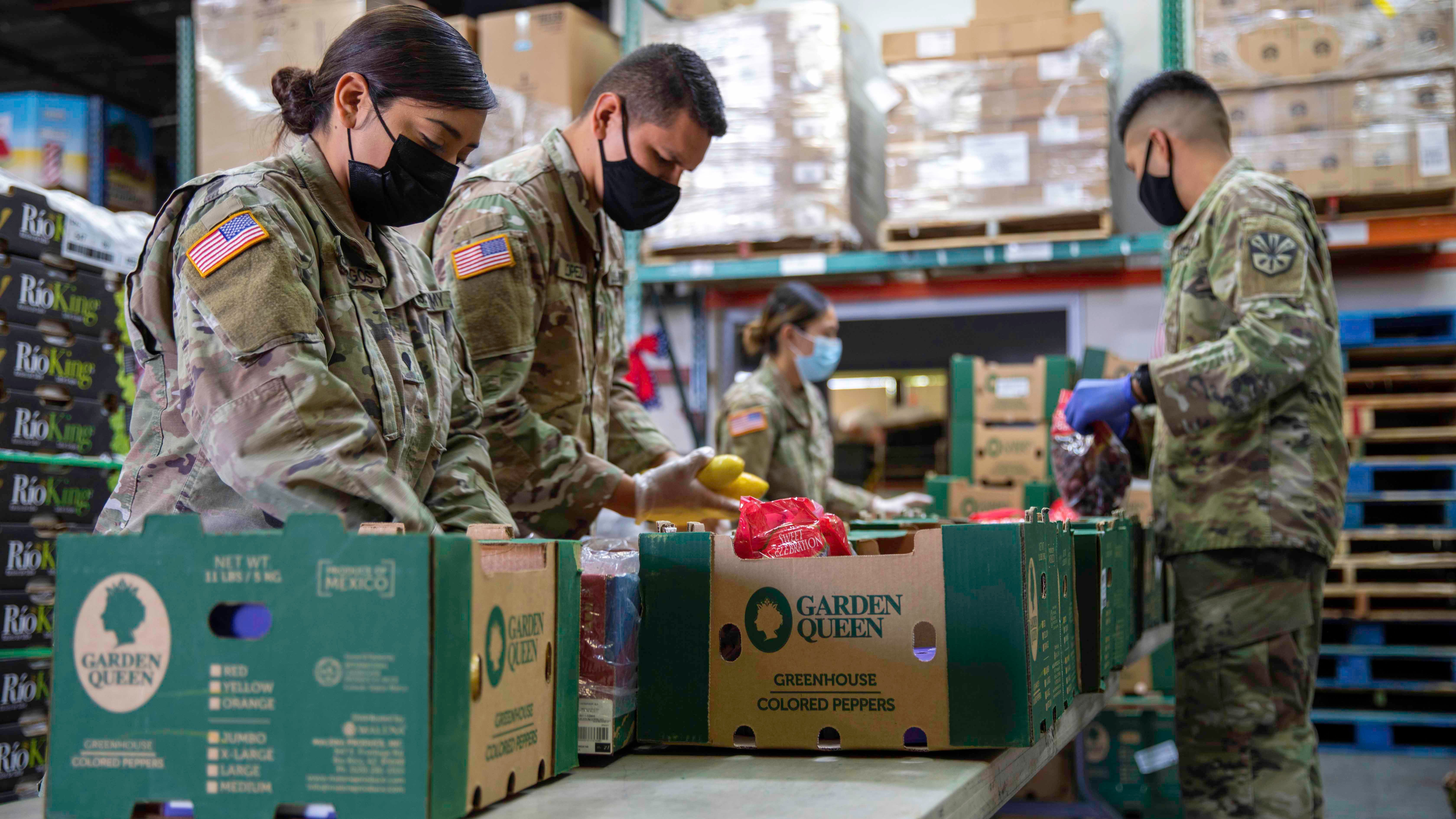Pandemic Had Wide Impact on Soldiers, Families
Pandemic Had Wide Impact on Soldiers, Families

The COVID-19 pandemic had far-reaching impacts on soldiers, affecting their physical health as well as their behavioral health, finances and food security, according to the Army’s seventh annual “Health of the Force” report.
Released in mid-April, the report incorporates data from more than 41 installations around the world and evaluates them on over 20 health, wellness and environmental factors. This year’s report includes a section on COVID-19 and its effect on soldiers’ health, according to an Army press release.
The section on COVID-19 provides a “deep dive into surveillance data and methods, the effect of the pandemic on military health care utilization, effects on physical and mental health and local actions focused on Army Public Health Nursing and vaccination efforts,” said Dr. Erin Goodell, who edited the report.
Goodell also noted that the data in the report were recorded during the first nine months of the pandemic, when lockdowns were more commonplace, training schedules were reduced, and social distancing and isolation may have been more pronounced.
Additionally, the report ranks installations and includes medical, wellness and environmental data to ensure that leaders can prioritize the needs of their soldiers.
Within the U.S, Joint Base Myer-Henderson Hall in Virginia, U.S. Army Garrison West Point in New York and Fort Jackson, South Carolina, scored better than the Army average on the installation health index. Overseas, U.S. Army Garrison Ansbach and U.S. Army Garrison Bavaria in Germany, U.S. Army Garrison Vicenza in Italy and U.S. Army Garrison Japan also scored above the Army average.
In terms of COVID-19, the report found the pandemic impacted soldiers’ finances and food security. One in seven active-duty families “transitioned from being food secure before the COVID-19 pandemic to marginally food insecure during the COVID-19 pandemic,” the report found. “These families were more likely to report financial insecurity as well as concerns about job security for their family members.”
Soldiers with financial struggles were also more likely to experience mental health effects. While half of soldiers reported negative financial impacts due to COVID-19, “those who experienced more severe financial impacts during the pandemic … were more likely to screen positive for depression or anxiety,” the report found.
Soldiers and their families also faced the stressors of military life. In 2020, 15% of soldiers had a diagnosis of one or more behavior health disorders, the report found. Women, older soldiers and African American service members all had a higher prevalence of behavioral health diagnoses.
Good leadership appeared to buffer the pandemic’s blow to mental health.
About 63% of soldiers surveyed said that their supervisor led by example to reduce the spread of COVID-19, and “soldiers who reported that their supervisor engaged in constructive COVID-19 leadership behaviors were less likely to screen positive for anxiety or depression,” the report found.
“This information emphasizes the need for all of us in Army leadership to acknowledge the impacts on soldiers’ behavioral health, especially for junior enlisted and racial/ethnic minority soldiers,” said Col. Alisa Wilma, Army Public Health Center director, in a statement. “Behavioral health services, financial resources and leadership support are important to help mitigate the impacts of the pandemic on soldiers’ behavioral health.”
The report is available here.

